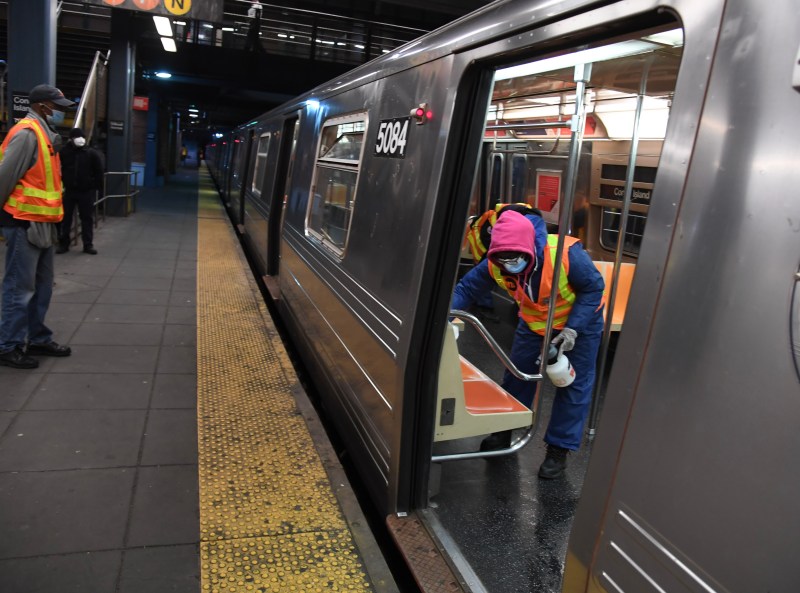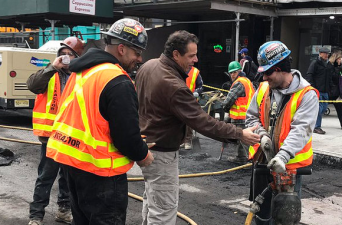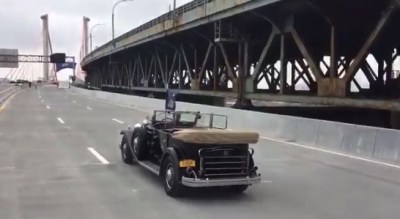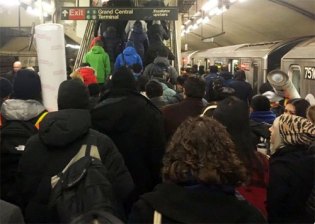OPINION: To Save the Subway, Tax the Ultra-Wealthy
New York needs to make the billionaires who disproportionately benefit from government to pay their fair share, a lawmaker argues.

More than a part of our identity as New Yorkers, the subway is the engine that powers our city, and it’s in trouble.

Last week, MTA officials released a so-called doomsday budget proposal that includes laying off more than 9,000 workers and cutting subway service by as much as 40 percent. The Long Island Rail Road and Metro-North would see a 50-percent cut. Some bus lines would be eliminated. On top of all that, the MTA is considering either ending unlimited passes or raising the base fare.
“Doomsday” is right. But there’s a fix: Ultra-wealthy New Yorkers must pay their fair share. New York has more billionaires — 118 — than most countries. In the first three months of the pandemic, those billionaires saw their net wealth grow by more than $77 billion.
That’s why, as an Assembly member, I support an ultra-millionaires tax. Our bill (A10364) would raise a minimum of $2.2 billion annually by creating tax brackets that would ensure greater fairness. The proposal establishes an income tax rate of 9.32 percent for incomes over $5 million, a 9.82 percent rate over $10 million, and a 10.32 percent rate over $100 million.
An overwhelming majority of New Yorkers support new taxes on the ultra-wealthy, an idea which also has the backing of advocacy organizations, organized labor, and many in the Legislature. According to a poll released by NYSUT and other unions, some 90 percent of New Yorkers are in favor of raising taxes on the wealthy in order to address the deficit.
That should come as little surprise — considering it’s the wealthy who have historically benefited most from our bountiful public services. For confirmation, all one needs to do is consider the federal government’s coronavirus bailout, which amounted to a handout for the rich and a slap in the face to working people, small businesses, and struggling transportation agencies.
Firing 9,000 workers and slashing 40% of subway and bus service would cost millions of New Yorkers several hours of commuting time each week and devastate the city for decades to come. #savetransithttps://t.co/KTkKESQJRb
— ? Riders Alliance (@RidersAlliance) November 18, 2020
Our transit system, like too many New Yorkers, is on life support. In the early days of the COVID-19 pandemic when New Yorkers were ordered to shelter in place, ridership plummeted by 90 percent. Eight months into the pandemic, ridership remains down 70 percent. With no revenue from fares and tolls, and no taxes or subsidies from the state, the MTA is facing a $12 billion deficit.
Not only would subway cuts disrupt the lives of riders, they would leave 9,000 people jobless during one of the worst economic crises in our country’s history. Those very transit workers put their lives on the line to keep our city moving in March and April. They got nurses, doctors, child care workers, grocery clerks, and other frontline workers where they needed to go.
As many as 25 percent of MTA transit workers contracted COVID-19 on the job; 126 of them died.
According to a report by Appleseed and New York University’s Rudin Center for Transportation, pandemic-related cutbacks could ripple across the region and cost the New York City area as much as 450,000 jobs and up to $50 billion in lost earnings.
Forget about an equitable recovery.
For months the MTA has warned that without federal relief by the end of the year, drastic reductions in service would be the only way to present a balanced budget. President-elect Joe Biden has promised to deliver much-needed relief to the American people, but much depends on the balance of power in the U.S. Senate, which will be decided by two runoff elections in Georgia.
Lives are on the lines and we cannot take a wait-and-see approach, nor can we bet New York’s future on the goodwill of Mitch McConnell.
Communities of color, where most of our city’s essential workers live, have been hit hardest by COVID-19. Existing structural inequalities in health care resulted in disproportionately worse outcomes for Black and brown New Yorkers. In certain parts of the city, our Black and Latinx neighbors were 15 times more likely than their white counterparts to die from the virus.
Severe cuts to bus and subway service would deepen existing inequalities and, once again, disproportionately fall on the shoulders of Black, brown and poor New Yorkers.
We’ve all had to sacrifice during this pandemic but that sacrifice has not been equally shared. Instead of balancing the MTA’s budget on the backs of communities that carry an oversized burden, we must put working families first and demand the wealthiest among us carry more.
Long before COVID-19, the state Assembly supported tax hikes on the wealthy to raise public investment in transit, education, housing, and social services. With dark days ahead, these proposals — not austerity — is what our city needs more than ever.
The MTA’s sacrifice isn’t predestined. There’s a better way forward: Tax the wealthy and invest in our city.
Dan Quart represents parts of the Upper East Side, Midtown East, Turtle Bay and Sutton Place in the State Assembly.


